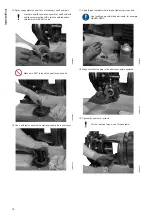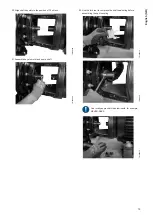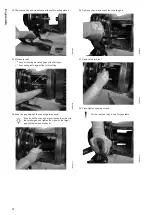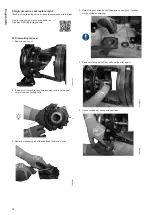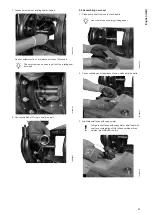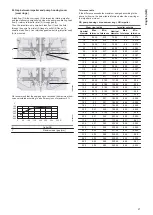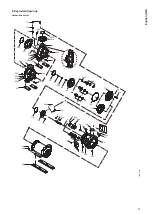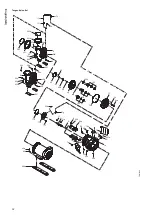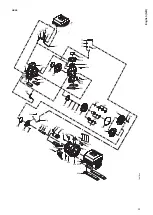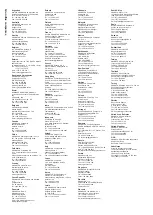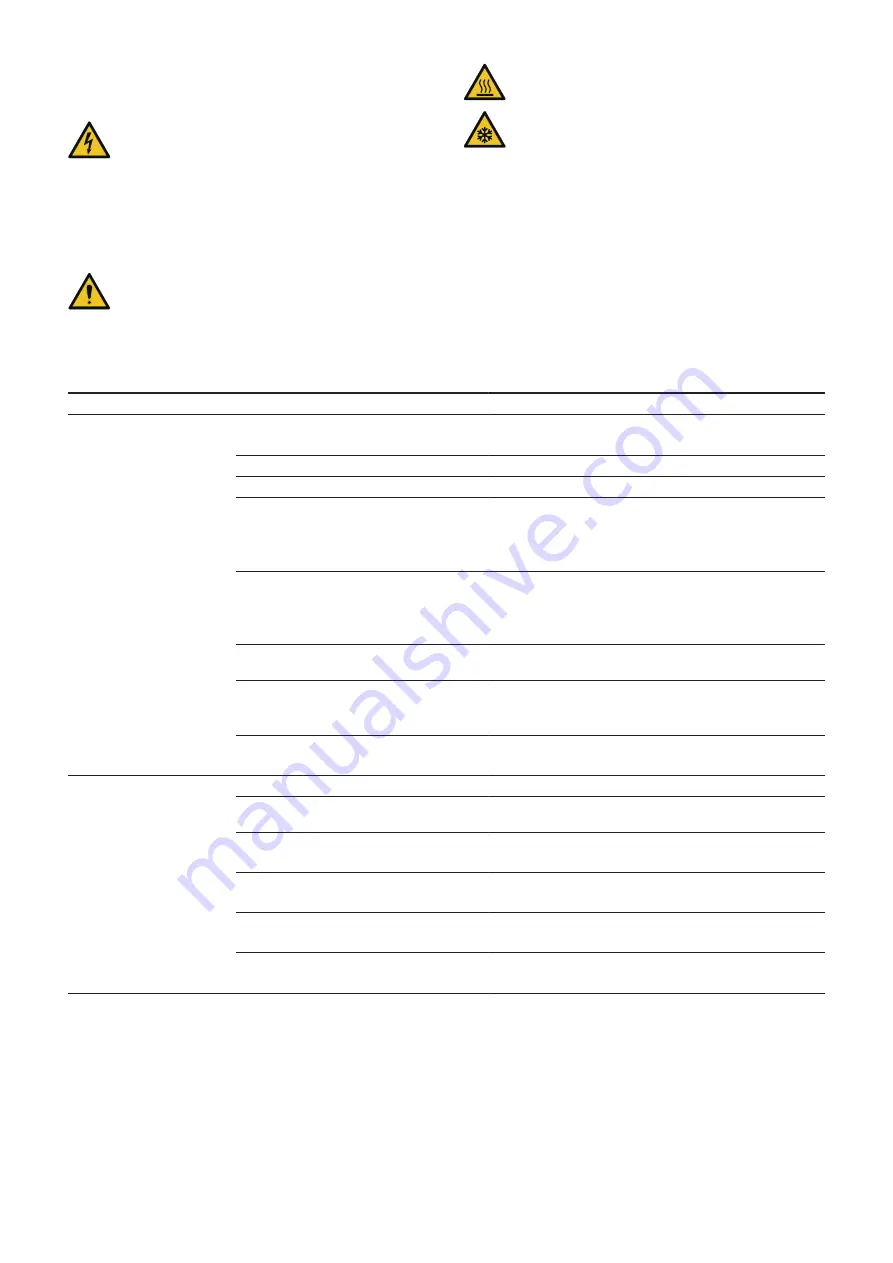
7. Fault finding
DANGER
Electric shock
Death or serious personal injury
‐
Before removing the terminal box cover and before re-
moving or dismantling the pump, make sure that the
power supply has been switched off and that it cannot
be accidentally switched on again. Use logout-tagout if
available.
WARNING
Escaping liquid
Death or serious personal injury
‐
Pay attention to the orientation of the vent hole to en-
sure that the escaping liquid does not cause personal
injury or damage to the motor or other components.
‐
In hot-liquid installations, pay special attention to the
risk of personal injury caused by scalding hot liquid.
‐
In cold-liquid installations, pay special attention to the
risk of personal injury caused by cold liquid.
CAUTION
Cold surfaceor Hot surface
Minor or moderate personal injury
‐
When pumping hot or cold liquids, make sure that no
one can accidentally come into contact with hot or cold
surfaces.
Fault
Cause
Remedy
1. The pump delivers no or
too little liquid.
a) The electrical connection is wrong, for in-
stance two phases.
1. Check the electrical connection.
2. Remedy, if necessary.
b) The direction of rotation is wrong.
•
Interchange two phases of the power supply.
c) There is air in inlet pipe.
•
Vent the inlet pipe or the pump.
d) The counterpressure is too high.
1. Set the duty point according to the flow and head that the
pump is selected for.
2. Check the system for debris.
3. Clean the system, if necessary.
e) The inlet pressure is too low.
•
Increase the liquid level on the inlet side.
•
Open the isolating valve in the inlet pipe.
•
Make sure that all the conditions in section Pipes are com-
plied with.
f) The inlet pipe or impeller is blocked by deb-
ris.
•
Clean the inlet pipe or pump.
g) The pump draws in air due to a defective
seal.
1. Check the pipeline seals, pump housing gaskets and shaft
seals.
2. Replace gaskets and seals, if necessary.
h) The pump draws in air due to low liquid lev-
el.
1. Increase the liquid level on the inlet side.
2. Keep the liquid level as constant as possible.
2. The motor-protective circuit
breaker has tripped because
the motor is overloaded.
a)The pump is blocked by debris.
•
Clean the pump.
b) The pump is running above rated duty
point.
•
Set the duty point according to the flow and head that the
pump is selected for.
c) The density or viscosity of the liquid is high-
er than specified upon order.
•
If less flow is sufficient, reduce the flow on the outlet side.
•
If less flow is insufficient, fit a more powerful motor.
d) The motor-protective circuit breaker over-
load setting is incorrect.
1. Check the setting of the motor-protective circuit breaker.
2. Adjust the setting if necessary.
e)The motor runs on two phases.
1. Check the electrical connection.
2. Replace the fuse, if defective.
f) The motor may be faulty
1. Check the motor.
2. Replace the motor if necessary.
29
English (GB)




